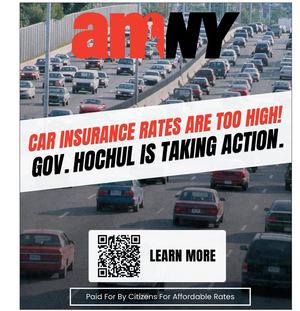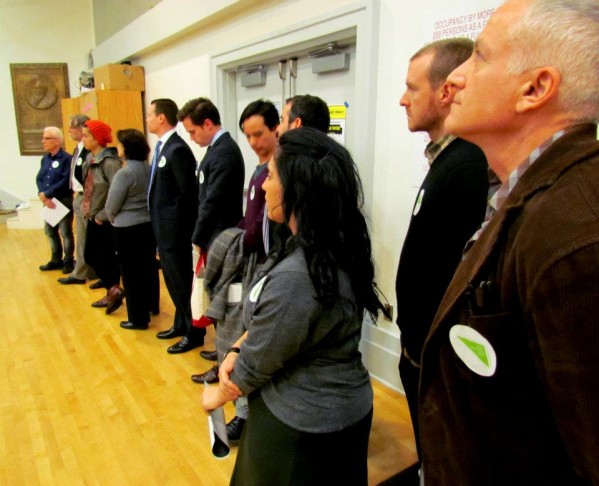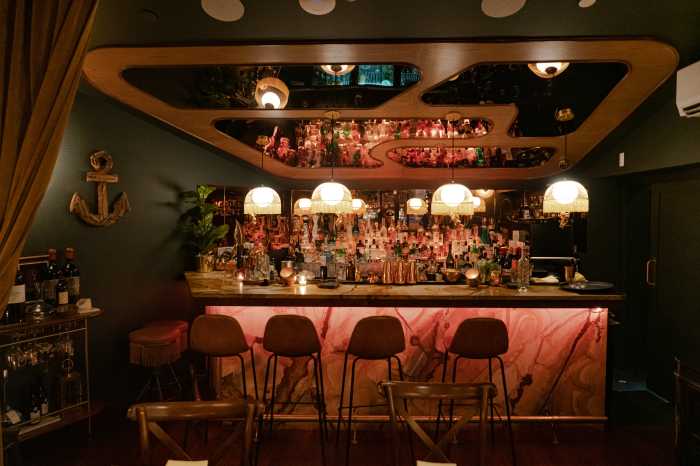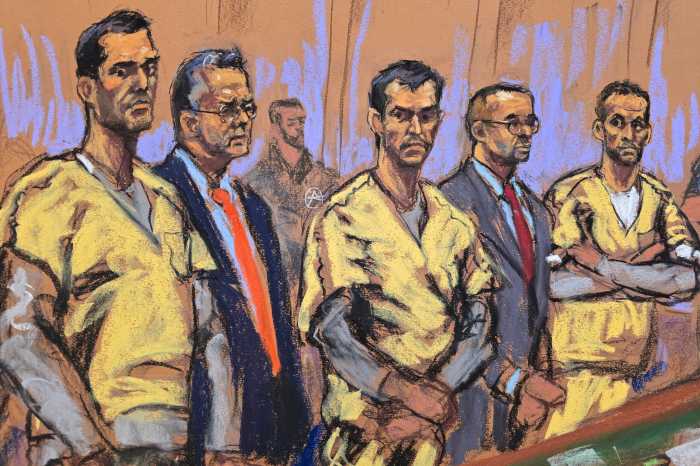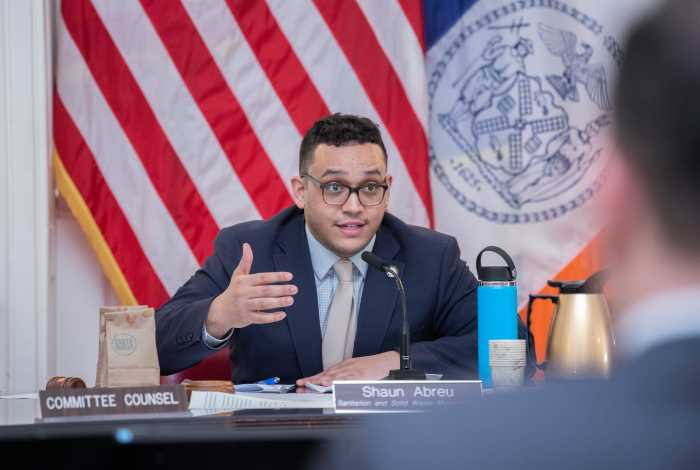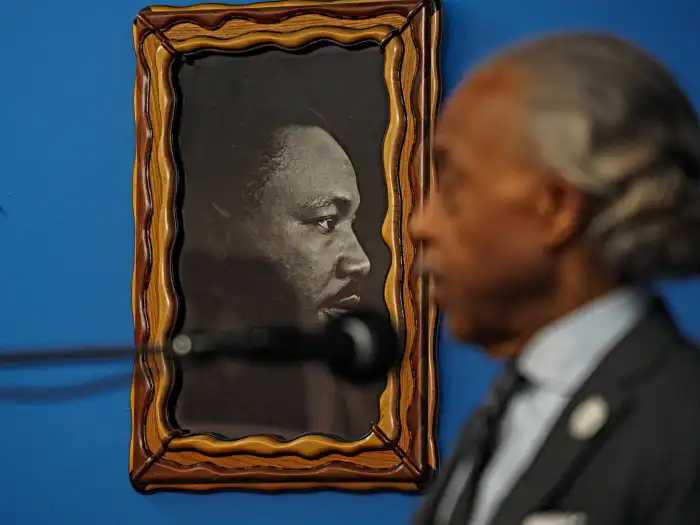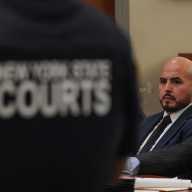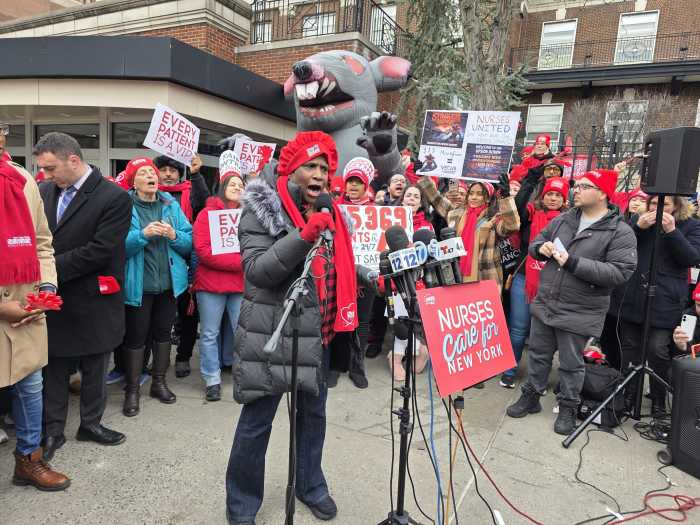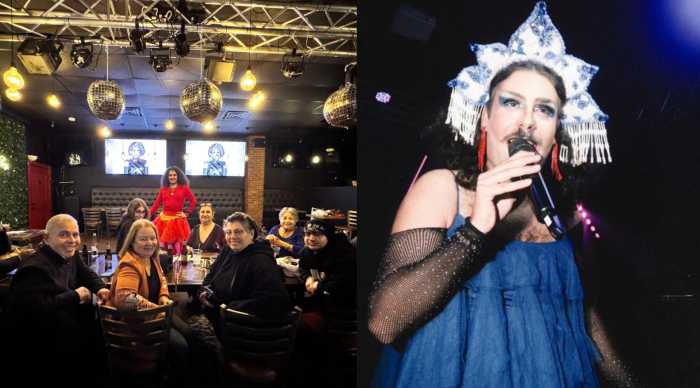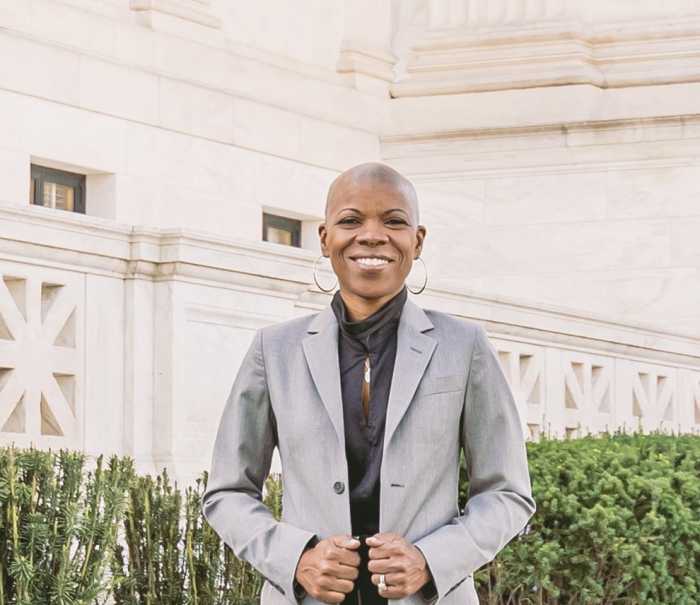By ALBERT AMATEAU | Community Board 2 last week passed a nearly unanimous resolution in support of Rudin Management’s current design for a triangle park across from the former St. Vincent’s Hospital campus.
However, a friendly amendment to the Nov. 17 resolution left the door open to a possible redesign of the park to include the underground space beneath part of the triangle for a community teaching space and an AIDS memorial.
The design by MPFP, Rudin’s landscape architects, is based on eliminating the underground space, demolishing an existing materials-handling building that served the former hospital, and building a park at sidewalk level on the west side of Seventh Ave.
But more than 50 people, including members of the Queer History Alliance, packed the board’s monthly meeting and demanded that the space become a shrine to the thousands of victims of AIDS and to the Sisters of Charity, founders of St. Vincent’s, which led in caring for people with AIDS/H.I.V.
While the resolution said the board “intends to give full consideration” to proposals to include the underground space in the park, the board laid out other goals that could trump an AIDS memorial and teaching center under the park.
“The design should not create a ‘destination’ site, it should celebrate and accommodate the local community,” the resolution said.
The community board is also concerned about how the underground space would affect the park on the surface.
The resolution also notes “the property owner [Rudin] has clearly stated that they are not willing to deliver the [underground] space to the public.”
Rudin has agreed to pay for building the park in connection with the residential conversion and redevelopment of the former hospital property on the east side of Seventh Ave. into 450 luxury apartments. The residential project and the park sites are part of the same city uniform land use review procedure (ULURP).
Rudin’s land-use lawyer, Melanie Meyers, told the community board that the park would be completed 30 months after the project is approved. And the Community Board 2 resolution said that completing the park within that time frame was an important consideration.
A Rudin spokesperson said the Department of City Planning had ruled that the belowground space could not be approved as part of the ULURP because is was not part of the draft environmental impact statement (E.I.S.) and its impact as a “destination” was not assessed.
Including the below-grade space would significantly impact the park at sidewalk level because of the need for elevators, stair access and ventilation fans.
Nevertheless, a friendly amendment added to the C.B. 2 resolution says the board “requests that no efforts be taken that would destroy the underground space and make it unusable throughout the period that this community board continues to vet additional uses of the park, even though this process may go beyond the ULURP process, unless and until such time as C.B. 2 has voted against the reuse of the underground space.”
Tobi Bergman, chairperson of the C.B. 2 Parks Committee who crafted the amendment with Steve Ashkinazi, said later that the friendly amendment was to prevent demolition of the space during the review period and to make sure the board had a final voice in the matter.
Bergman agreed that there was a possibility that the underground space eventually could be part of the park, but he pointed out that the board has “set a high bar” for its inclusion.
C.B. 2 wants the triangle park to be administered and maintained as a city park, but ownership and legal issues appear to prevent a straight transfer of the property to the Department of Parks and Recreation. Legally, the condo owners of the residential development would own the property but they could agree to be part of a nonprofit entity that would run the park.
The plea for including the underground space in the park came from gay activists and community leaders, including Charles King, founder of Housing Works; Paul Kelterborn and Christopher Tepper, founders of the Queen History Alliance; Trudy Flynn, of the PRIDE Agenda; Ken Lustbader, a historic preservation consultant; and John Nalley, a former member of ACT UP, New York, a gay direct action group.
They declared that 108,000 New York City residents have died of AIDS in the 40 years since the disease first reached awareness of the general public.
